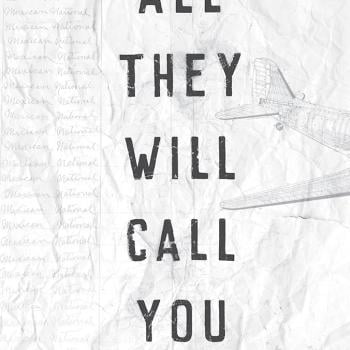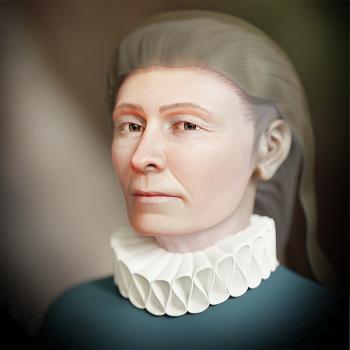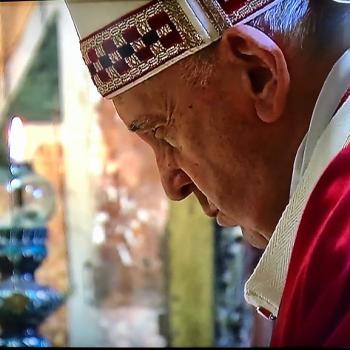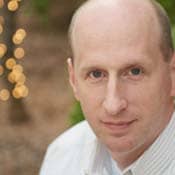 On January 23, 2011, I stood, overwhelmed, in front of almost 2,000 pro-life students. I was overwhelmed by their energy, by their commitment to defending the defenseless, and by their gracious and Godly spirit. For years I've traveled the country, speaking to thousands of evangelical students, and find myself—even in front of "activist" organizations—virtually pleading for a sliver of courage or a trace of commitment in support of life or marriage. In response, I get encouragement, good words, and all too often nothing else.
On January 23, 2011, I stood, overwhelmed, in front of almost 2,000 pro-life students. I was overwhelmed by their energy, by their commitment to defending the defenseless, and by their gracious and Godly spirit. For years I've traveled the country, speaking to thousands of evangelical students, and find myself—even in front of "activist" organizations—virtually pleading for a sliver of courage or a trace of commitment in support of life or marriage. In response, I get encouragement, good words, and all too often nothing else.
But on January 23, it was different. Instead of inspiring, I was inspired. Rather than exhorting others to greater levels of engagement, I was admonished for my own compromises. The contrast between that day and most of my days—the difference between that audience and most of my audiences—could not have been more profound. And this audience was largely Catholic, and the Catholic Church for almost forty years has been the beating heart of the American pro-life movement.
On November 4, 2008, defenders of traditional marriage won perhaps their greatest—and to the secular liberal establishment, most shocking—victory in the almost decade-long struggle against the redefinition of marriage. Proposition 8, a state constitutional amendment establishing marriage as the union of one man and one woman, won a clear majority in California. Although outspent and vilified by the mainstream media, religious Californians opened their checkbooks, donated their time, and endured the scorn of the secular elite to overturn California's judicially-imposed same-sex marriage regime. And where did a wildly disproportionate number of dollars and volunteers come from? The LDS church.
As devout Catholics and faithful Mormons step forward boldly, evangelical Protestants appear in cultural disarray. The most popular of the new generation of evangelical pastors—Rick Warren and Joel Osteen—stay out of the cultural fray. Evangelical youth may have orthodox opinions on marriage or life, but they're increasingly reluctant to voice those opinions, lest they appear "divisive" or "intolerant." In fact, at times it appears as if much of the evangelical world has retreated into a defensive crouch, eager to promote its universally-loved work for the poor while abjectly apologizing for the cultural battles of years past.
Why are Catholics and Mormons increasingly bold when so many evangelicals are increasingly timid? Why are Catholics so often leading on life and Mormons so often leading on marriage? The answer, I think, is theological and cultural, two words that expose profound weaknesses in American evangelicalism.
First, theology. One cannot spend five minutes with thoughtful Catholics without understanding how the defense of life is a fundamental and integral part of the DNA of the church. Since the defense of life is theologically-grounded, it is functionally and practically independent of any secular ideology. Nuns who one day attend a sit-in for immigrant rights may the next day do sidewalk counseling outside of Planned Parenthood. Bishops, "progressive" or conservative, defend life in Catholic hospitals. Catholics who study church doctrine, who immerse themselves in the teachings of the church, understand that to defend life is to imitate Christ. Life is not just an "issue," for a Catholic; it is at the core of the Gospel.
Next, culture. The Mormon church knows what it is like to live outside the mainstream. Born in an atmosphere of violent persecution, with a cultural heritage buttressed by their own perilous trek across the wilderness to the haven of Utah, and with strong emphases on family and church bonds, the Mormon culture is inherently resilient in the face of cultural headwinds. Two-year missions teach Mormon children about selfless service but also how to face rejection and even scorn. Evangelicals, by contrast, are often shocked when co-workers turn on them, or when the country drifts from its heritage. Mormons aren't so easily shaken. After all, the country wasn't theirs to begin with.
For all our many virtues (and there are many: American evangelicals are among the most generous and loving people in the world), we generally have no conception of—or particular loyalty to—"church teaching" and tend to see marriage and life as "issues" rather than integral parts of our core theology. Since we're busy being spiritual entrepreneurs, revolutionizing the whole concept of church every 90 seconds, we don't have the kind of (relative) theological stability that has marked almost 2,000 years of Catholic history, and we can't come close to matching the (again, relative) uniformity of teaching that marks the Mormon experience.
We also lack the shared Catholic and Mormon culture and the solidarity that comes with it. We're more unified than we've been in the past, but we're a collection of subcultures that comprise a shaky, larger whole. And we are often desperate for acceptance. We view the transient scorn of popular culture as a virtual cataclysm, and our distressingly common health and wealth gospels wrongly teach us that Christian faith carries with it measurable earthly pleasures. We lack a theology of suffering. We lack a unity of purpose. And our convictions all too often collapse in the face of strong cultural opposition.
Simply put, we evangelicals are blown and tossed by the cultural winds. Right now, the winds are blowing against us, and our young people are reluctant to engage. But God is sovereign, and the fate of the nation is in His hands, not ours. And if we fail, there are others—some from an ancient tradition, some from a new one—who may very well carry out His work with more faith and courage than we ever could.
Read a Catholic response by Tim Muldoon to this article here.
2/4/2011 5:00:00 AM





